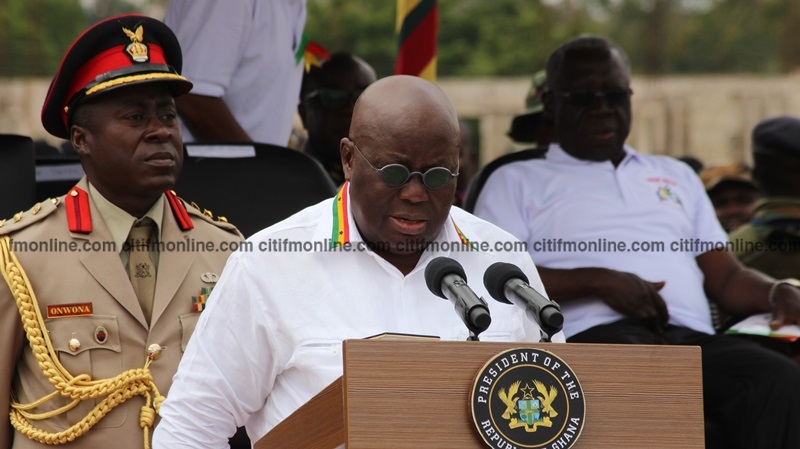President Nana Addo Dankwa Akufo-Addo has reiterated his belief in the crucial role of education in the development of the African continent.
Speaking at the Bloomberg Global Business Forum at the Plaza Hotel in New York City on Wednesday, Nana Addo stated that, ensuring universal access to education for all children on the continent within the next two decades, will greatly aid the improvement of the general standards of living on the continent.
[contextly_sidebar id=”kpBcrl2ST6n0fLkZWsaRZeVpwmdrl4M6″]”The [SDG] goals go together, the 17 of them are all interconnected and if we are going to get the impact we’re looking for then all 17 have to work together. Secondly, global outcomes, if they are to succeed, means that they have to succeed in Africa. Unfortunately, Africa, sitting on the greatest resources in the world also has the poorest populations. If the goals are to be seen to have succeeded, hey would have to have succeeded in Africa. The most important consideration for those of us given the privilege of political leadership is to find a way of selling the goals to our population as something that has a direct impact on their lives, not something created in New York by a group of politicians and bureaucrats,” he said.
“As far as I’m concerned, the most important of them is education. If we can, and it’s eminently feasible, be in a situation whereby in 2030 we can say that all of Africa’s children are in schools and have access to quality education, the impact of that on the development of the continent and the quality of life of the people will be enormous.”
The President launched the Free Senior High School Policy a couple of weeks ago, as part of measures to ensure that no child is unable to continue their education at the secondary level because of lack of funds.
According to Nana Addo, since the introduction of the policy, the number of students who would have missed out on Senior High School education has dropped by more than 30 percent.
“We’ve started in Ghana a system to ensure that there is free education all through the basic system – the basic system is defined as kindergarten, primary school, Junior High School and Senior High School. In the public system, all of those steps on the educational ladder are now free. The last plank was put in two weeks ago when I launched Free SHS in Ghana,” he stated.
“Until this year, on an average, 100, 000 Ghanaian youth dropped out of the educational system between JHS and SHS largely because their parents couldn’t afford it. So even though they had the educational qualification, they couldn’t take up their places in the SHS system. It would mean that in ten years in a country with a population of 27 million people, a million young people would have their education truncated at the JHS level and that’s an unacceptable cost for any society that seeks to organise on an intelligent basis. This year which is the first introduction of the system of Free SHS, the number has reduced from 100, 000 to 36, 000 with the policy very much in its infant years.”
–
By: Edwin Kwakofi/citifmonline.com/Ghana



